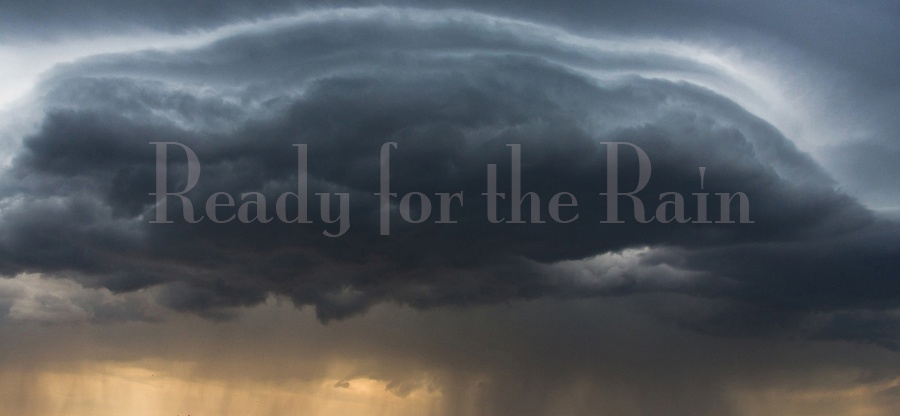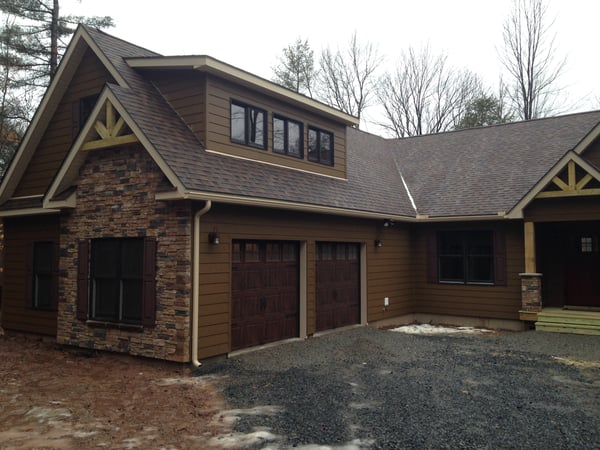 Many of us grew up reciting the old rhyme: “April showers bring May flowers.” It was a gentle reminder that the leaden skies of early spring actually bring hidden benefits and make places such as the Poconos a beautiful place to explore and live. For instance, all that water makes the Poconos region a great place to enjoy water sports. But those rains can also bring other less desirable results for unsuspecting homeowners. Here are some tips for preparing your Poconos home for spring rain.
Many of us grew up reciting the old rhyme: “April showers bring May flowers.” It was a gentle reminder that the leaden skies of early spring actually bring hidden benefits and make places such as the Poconos a beautiful place to explore and live. For instance, all that water makes the Poconos region a great place to enjoy water sports. But those rains can also bring other less desirable results for unsuspecting homeowners. Here are some tips for preparing your Poconos home for spring rain.
Some of the unwelcome side effects of heavy spring rains can be house damaging problems such as:
- Deterioration of Wood Siding: While wood is a beautiful building material it does deteriorate over time. Water can warp and break down the siding. Staying on top of regular painting or staining definitely helps. But with some older homes, you may actually have to consider replacing some of the siding so that you don’t lose structural integrity—and the ability to insulate your home.
- Growth of Mold and Mildew: Soggy siding can also provide mold and mildew with a perfect environment in which to grow. This isn't just a visual or cosmetic problem. Left unchecked, mold and mildew can work their way into the interior of your home and cause health problems.
- Water Damage Through Leaky Windows: Siding isn’t the only thing that wears out over time. As they age, windows lose their ability to keep water out. As gaps develop, they also lose their ability to keep heat, cold, and sound out. Regular maintenance of windows and calking can forestall the need to replace windows, but even with care, your windows may need replacing.
- Water Damage in Lower Levels (especially basements): Nobody likes a damp basement. If your basement is uncomfortable, it takes away valuable living space that you might use for a TV room or game room. But water in the basement can also foster the growth of hazardous mold. And it can even weaken the very structural foundation of your home.
What Can You Do to Protect Your Home?
The most logical places to focus on protecting your home begin at either the top or the bottom of your house. That means taking a good look at your roof and at your foundation.
- From the Top Down: Your roof is your first line of defense against potentially damaging rain. Have a trusted professional examine your roof. A professional will look for shingles that are buckled, cracked or curling. Those defects can let water into the structural support part of your roof. One thing you can do is to check your attic for signs of leakage such as warped boards or water stains. Those could be signs that you have a problem with your roof. You can also check to see if there is any damp or molding insulation in your attic. That's another sign of leakage.
- From the Bottom Up: Your foundation is on the opposite end of things, but it’s just as important. While it’s not unusual to have higher humidity in a Poconos area basement, you still don’t want it to be damp—or wet. Check your basement after heavy rains to see if there is unusual dampness or even standing pools of water. Check for cracks in the foundation walls. Not every minor crack is something to worry about. Some of that is the natural result of a house settling over time. But if you see significant cracks (especially ones that are damp or wet), you may want to have a professional take a look at it. By the way, if you’re considering remodeling the basement in your Poconos home, click here for 6 things to think about before remodeling your basement.
- Ease Your Pain with a Drain: Sometimes dampness in the basement can be alleviated be addressing your drainage situation. Take a look at your downspouts during a rainstorm. Are they positioned properly so that they are directing water away from your house? You may even want to add extensions to the ends of your downspouts to ensure that the water stays away from your home’s foundation.
Clogged gutters can also cause drainage problems. If your gutters are clogged with debris they won't send rainwater down the downspouts and away from your house. Instead, they'll overflow and drip water right next to your foundation. Make sure your gutters are cleared of all the debris that built up over the winter. You also might want to consider some kind of gutter covers (there are a variety of options available) that can keep leaves and dirt and even shingle grit from clogging your gutters and causing problems.
We love the benefits that spring rains bring to the Poconos region. But don’t let those spring rains rob you of the comfort and safety you expect from your home.









